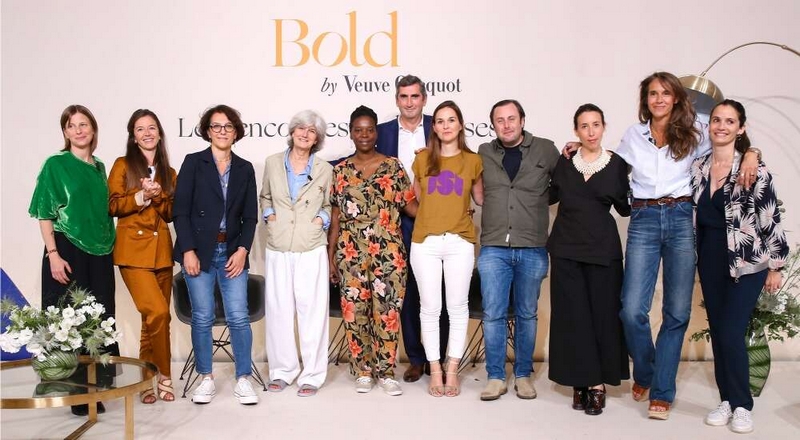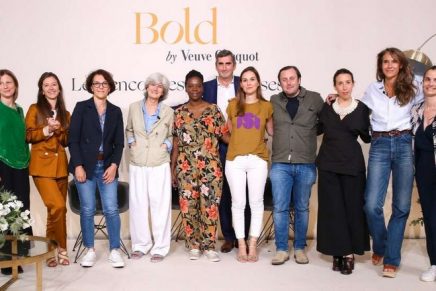For nearly 50 years Veuve Clicquot has celebrated the entrepreneurial legacy of Madame Clicquot, one of the first businesswomen of modern times. Last week, Veuve Clicquot presented the results of its second international survey of female entrepreneurship.
The high-end champagne Maison is taking its support for female entrepreneurs even further in 2021 thanks to a redesigned Bold by Veuve Clicquot program that aims to drive more inclusion, more impact and more international visibility for audacious women entrepreneurs. The program is anchored by concrete initiatives with support from the expertise of Role Makers to help identify role models, encourage networking for women and men at a regional level, embolden female leaders and foster opportunities for sharing and exchanges and celebration of female entrepreneurship.
Veuve Clicquot presented the results of its second international survey of female entrepreneurship on July 1 during “Les Rencontres Audacieuses” event at the “Cité Audacieuse”, a “bold city” space in Paris dedicated to women’s rights. Spanning 17 countries, the survey was conducted as part of the “Bold by Veuve Clicquot” program, offering insights into female entrepreneurship in a post-Covid context.
This new survey identified popular misconceptions, the impact of the health crisis, persistent structural and mental barriers, along with success mechanisms needed to support female entrepreneurship.
While the health crisis often slowed the career advancement of women, it seems to have provided a springboard for many of them. In 2021, 38% of French women expressed entrepreneurial aspirations, up 10 points versus the previous survey in 2019. Over a third of them feel that the crisis has given them added motivation to pursue their entrepreneurial plans. Some 53% of the female entrepreneurs surveyed said they felt more confident and determined than before the crisis, and 33% believe that the crisis has enabled them to pursue new opportunities. This trend in France was confirmed in results from 11 of the 17 countries surveyed.
Entrepreneurship has become a concrete and clearly articulated professional goal for 30% of the women, who say their primary motivation today is to earn more money, while 27% cite a desire for greater social recognition, 22% a quest for greater meaning in their lives, and 16% the ambition to be their own boss. This evolution in motivations shows that women do not see becoming an entrepreneur as simply a goal to be achieved, but rather as a full-fledged career and indeed life plan.
At the same time, there remain significant structural and mental barriers to be overcome. In this 2021 edition, 57% of the respondents continue to believe that it is more difficult for a woman to become an entrepreneur than a man, and the majority of the women in 11 of the 17 countries covered feel that female entrepreneurship makes a balanced family life more challenging.
What’s more, there is still a significant gap between women and men entrepreneurs in tech and IT, creating a growing risk of gender inequality in a sector with major growth potential.
The same is true with regards to confidence, which must be significantly boosted by establishing specific success mechanisms in terms of networking and mentoring in order to address the expectations of the 67% of women and 68% of men who aspire to pursue entrepreneurial ventures and believe that having a mentor is essential to their success. The survey underlined the importance of role models as well: although 92% of women “wantrapreneurs” say female entrepreneurs are inspiring, only 17% were able to cite one by name.





